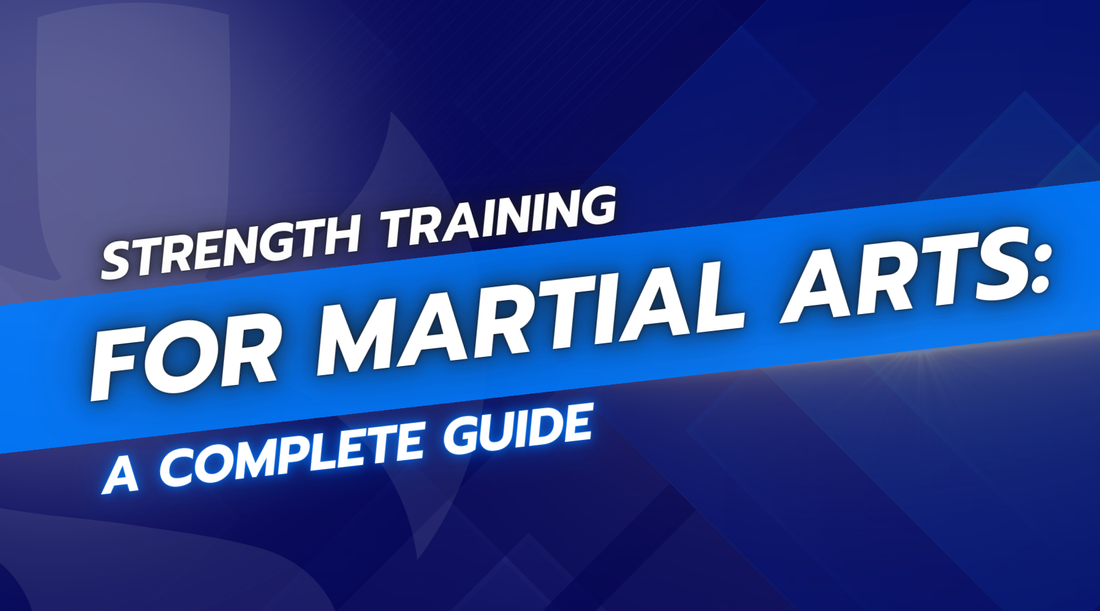
Strength Training for Martial Arts: A Complete Guide
Share
When it comes to excelling in martial arts, physical prowess is just as crucial as technical skill. Strength training is an essential component of any martial artist's regimen, providing the power and endurance needed to perform at peak levels. This guide aims to give you a comprehensive overview of strength training tailored specifically for martial artists, ensuring you harness your full potential.
Understanding Martial Arts and Strength Training
Before diving into the specifics, it's important to understand what martial arts and strength training entail. Martial arts encompass various combat practices that are not only physical but also mental and spiritual. Strength training, on the other hand, involves exercises designed to improve muscle strength and endurance.
Combining these disciplines can significantly enhance a martial artist's performance, providing benefits such as increased power, better balance, and improved injury resilience.
Types of Strength Training for Martial Artists
- Resistance Training: Using weights or resistance bands to build muscle.
- Bodyweight Exercises: Utilizing your body weight to increase strength, such as push-ups and squats.
- Plyometrics: Explosive movements like jump squats and box jumps that enhance power.
- Isometric Exercises: Static exercises like planks that improve muscular endurance.
Key Strength Training Principles
- Progressive Overload: Gradually increasing the weight or resistance to challenge your muscles.
- Specificity: Tailoring your training to mimic the movements and demands of martial arts.
- Recovery and Rest: Allowing time for your muscles to repair and grow.
- Periodization: Cycling through different phases of training to avoid plateaus and overtraining.
Essential Muscle Groups for Martial Artists
- Core Muscles: Vital for balance and power in all martial arts movements.
- Upper Body: Enhances striking power and grappling strength.
- Lower Body: Provides the foundation for kicks, stability, and movement.
Creating a Strength Training Routine
- Assessing Your Starting Point: Understand your current fitness level to tailor your program.
- Setting Goals: Define what you want to achieve, whether it's increased power, endurance, or injury prevention.
- Structuring Your Workout: Balance different types of exercises and ensure you target all essential muscle groups.
Sample Strength Training Workouts
- Beginner Workout Plan:
- Focus on mastering basic movements and building a solid foundation.
- Example exercises: bodyweight squats, push-ups, planks, and resistance band exercises.
- Intermediate Workout Plan:
- Introduce more complex movements and increase intensity.
- Example exercises: weighted squats, bench presses, deadlifts, and pull-ups.
- Advanced Workout Plan:
- Emphasize explosive power and peak strength.
- Example exercises: plyometric drills, advanced lifting techniques, and compound movements.
Strength Training Exercises for Martial Artists
- Squats and Variations: Essential for lower body strength and explosive power.
- Deadlifts and Variations: Build overall strength and enhance grip power.
- Push-Ups and Variations: Improve upper body strength and endurance.
- Pull-Ups and Variations: Crucial for upper body pulling strength.
- Core Exercises: Planks, Russian twists, and leg raises to strengthen the core.
Incorporating Flexibility and Mobility
Flexibility is as important as strength in martial arts. Regular stretching and mobility drills can prevent injuries and enhance performance. Incorporate dynamic stretches before workouts and static stretches after to maintain flexibility.
Nutrition and Recovery for Strength Training
- Importance of Nutrition: Fuel your body with the right nutrients to maximize performance.
- Pre- and Post-Workout Nutrition: Consume carbs and protein before and after workouts for energy and recovery.
- Supplements for Strength Training: Consider protein powders, creatine, and BCAAs to support your training regimen.
Avoiding Common Injuries
Injuries can derail your training progress. Common injuries include strains, sprains, and joint issues. Prevent these by warming up properly, using correct form, and not overtraining. Always listen to your body and allow time for recovery.
Mental Toughness and Strength Training
Physical training also builds mental resilience. Pushing through challenging workouts develops mental toughness, which is crucial in martial arts. Techniques like visualization can help improve focus and performance.
Tracking Progress and Making Adjustments
Keep a training log to monitor your progress and identify areas for improvement. Regularly assess your performance and adjust your routine to keep challenging your body and making gains.
The Role of a Coach or Trainer
Working with a coach can provide professional guidance and personalized feedback. A good coach will help you stay motivated, ensure you're using proper form, and design a program tailored to your needs.
Final Thoughts
Strength training is an indispensable part of a martial artist's training regimen. By understanding the principles, creating a balanced routine, and consistently challenging yourself, you can significantly enhance your martial arts performance. Start today, stay committed, and watch your skills and strength grow.
